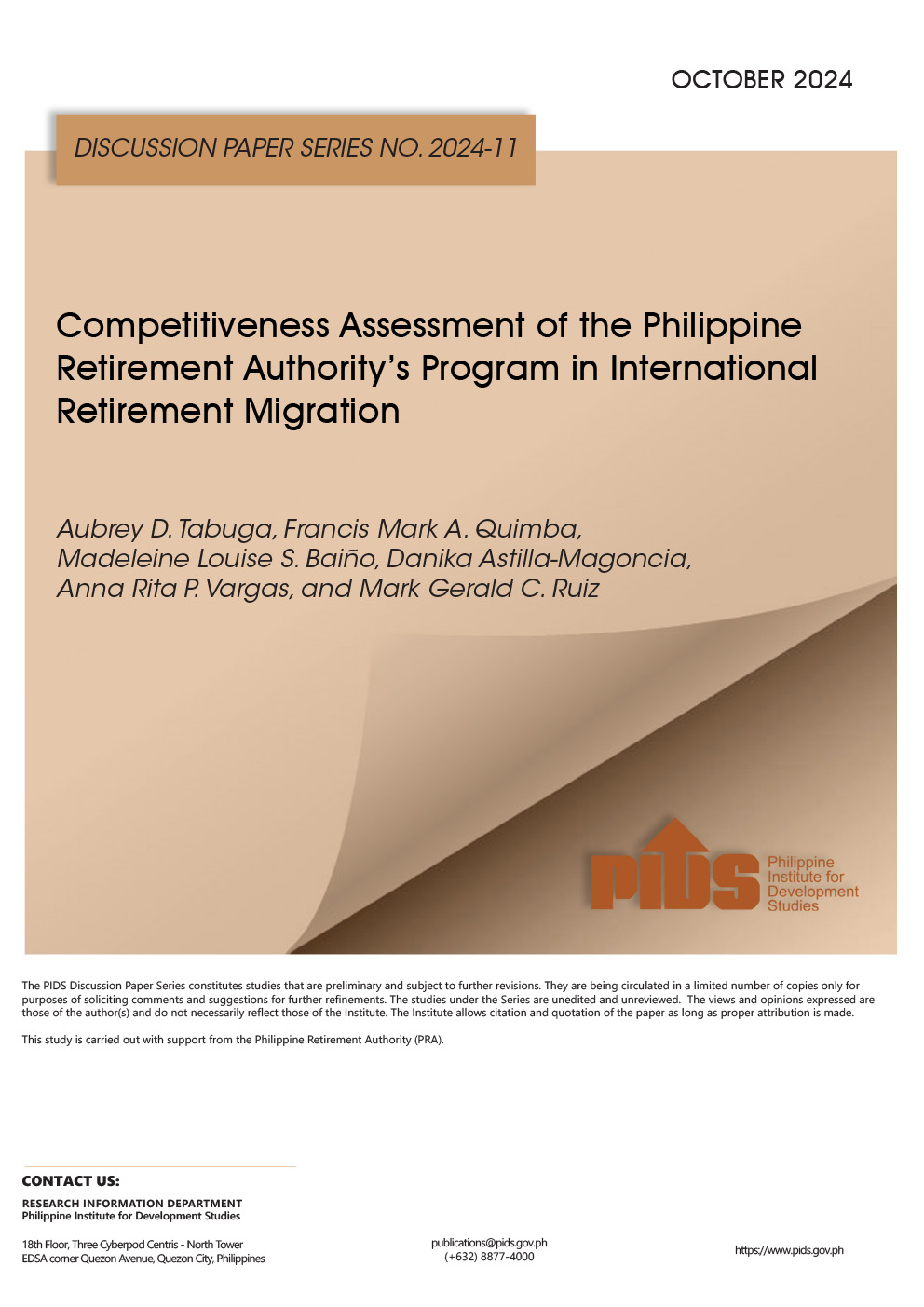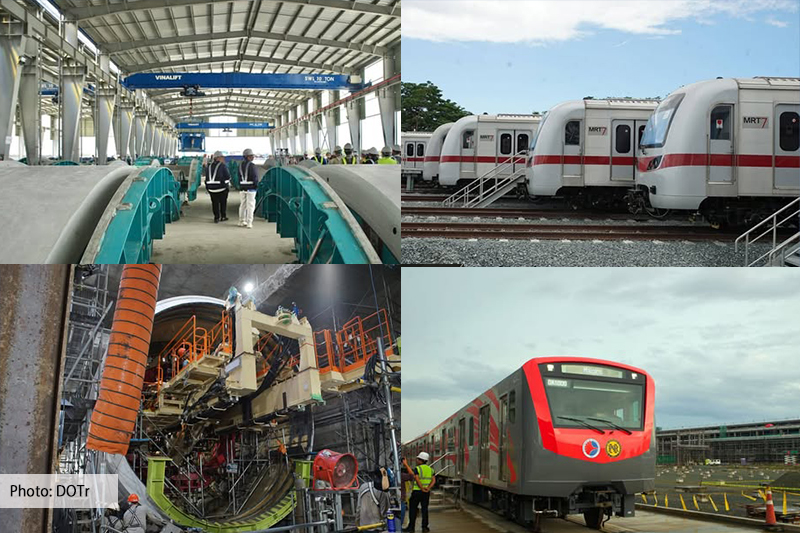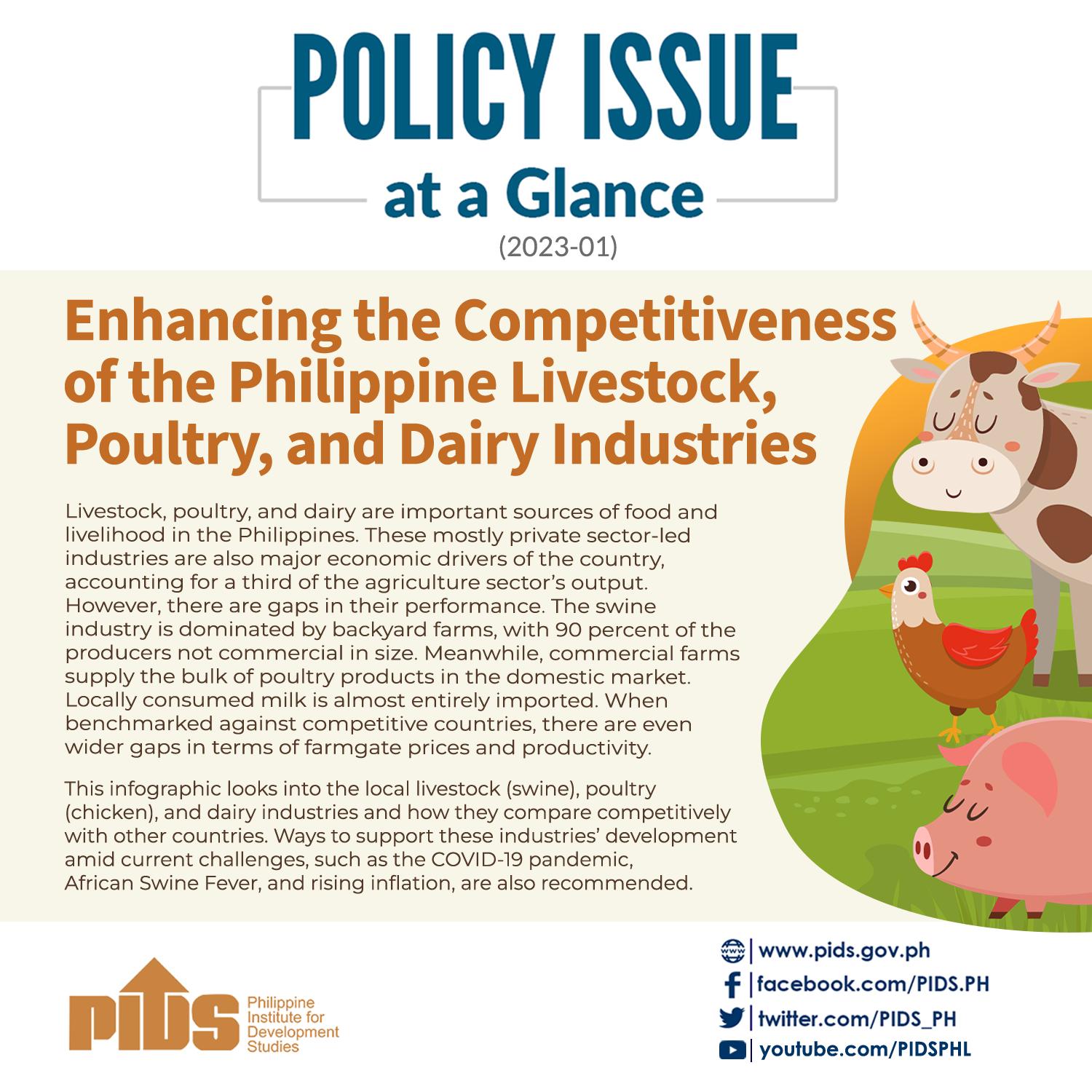It is essential to improve the competitiveness of all services in the country in order to transform the economy and achieve broad-based growth, a policy note published by the Philippine Institute for Development Studies said.
According to the publication titled, Formulating the Philippine Services Strategy for Inclusive Growth, there are still vast opportunities left untapped to fully exploit the role of the services sector in the country.
"Competitive services are necessary for inclusive growth. Services do not only directly contribute to the creation of jobs and value added in the economy but affect the performance of other sectors through critical intersectoral linkages,” the policy note, authored by PIDS consultant Ramonette Serafica, said.
"If services are inefficient, costly, of poor quality, and inaccessible especially to the poorer segments of the population, inclusive growth would not be attainable,” it added.
The report said that in addition to restrictive policies, anti-competitive business practices also exist, and such practices undermine the efficient supply of services in the country.
"Gains are greater when comprehensive sectoral reforms are undertaken that not only remove discriminatory measures but also create a pro-competition environment,” the policy note said.
"As part of the services strategy, a trade-related audit of the laws and regulations affecting the services sector should be conducted with the view of removing measures whose policy objective is no longer relevant or could be achieved by less restrictive measures,” it added.
The policy note said that in order to further create an environment which is conducive to improving competitiveness, strategies involving government policy on innovation and human resource development (HRD) are needed as well.
"Innovation is broader than just science and technology. It involves the use and dissemination of new technologies and practices that improve productivity,” it said.
"Creating an overall climate that encourages innovation includes appropriate incentives and mechanisms to support innovators, removing obstacles to innovative initiatives, establishing responsive research structures, and fostering a creative and receptive population through appropriate educational systems,” added.
The policy note said that many countries, both developed and developing, are using innovation as the foundation of competitive industries from agriculture to services.
HRD policies meanwhile cover the quality of the labor force and the regulation of the labor market.
Related Posts
Publications
Press Releases
Video Highlights
[No related items]







